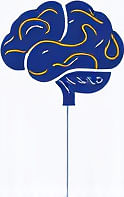Leveraging Neurodiversity Strengths in Remote Work
 by Marlene Keeling
by Marlene Keeling
Explore how neurodivergent individuals can thrive in remote roles by capitalizing on unique strengths like intense focus and innovative thinking. This article offers practical advice for better productivity and work-life balance, tailored for adults with ADHD or autism.

Remote work offers a unique opportunity for neurodivergent adults to shine. Many people with ADHD or autism find that flexible schedules and home-based environments suit their needs better than traditional offices. For instance, the ability to control one's surroundings can lead to greater productivity.
One key strength is the intense focus often seen in individuals with ADHD. This can translate to deep work sessions without the distractions of a busy office. To make the most of this, consider setting up a dedicated workspace. A quiet corner with minimal interruptions allows for sustained attention on tasks.
For those on the autism spectrum, strengths in pattern recognition and detail-oriented thinking are particularly valuable in remote roles. These traits help in roles requiring precision, such as data analysis or programming. Creating a daily routine can support this. Start with a simple schedule that includes breaks to prevent overload.
Practical hacks can make a big difference. First, use tools like timers to manage work intervals. The Pomodoro technique, for example, involves working for a set period followed by a short rest. This helps maintain energy levels throughout the day.
Another approach is to prioritize tasks based on energy levels. Neurodivergent individuals might experience fluctuations in concentration, so tackling high-focus activities during peak times works well. Keep a log of when you feel most alert to identify these patterns.
Communication is essential in remote settings. People with autism may excel at written communication, which is often preferred in virtual teams. To enhance this, prepare agendas for meetings in advance. This reduces unexpected changes and allows for clearer participation.
Building a supportive network is also important. Connect with colleagues who understand neurodiversity. Sharing experiences can foster a sense of community and provide helpful feedback.
Strategies for Work-Life Balance
Maintaining balance is crucial to avoid burnout. For adults with ADHD, incorporating physical activity into the day can help regulate emotions. A short walk during breaks refreshes the mind and improves focus.
Mindfulness practices offer benefits too. Simple breathing exercises can ground individuals during overwhelming moments. Integrate these into your routine to build resilience over time.
When it involves family or personal commitments, set clear boundaries. Designate specific hours for work and stick to them as much as possible. This separation helps in recharging outside of professional duties.
Technology plays a role in supporting neurodiversity. Apps that block distractions or organize tasks can be game-changing. Experiment with different options to find what fits best.
Productivity Tips
Here are some specific tips:
- Break down large projects into smaller steps to make them manageable.
- Use visual aids like color-coded calendars to track deadlines.
- Adjust lighting and noise levels in your workspace for comfort.
- Seek feedback regularly to ensure your strengths are utilized effectively.
Remember, everyone's experience is different. What works for one person with autism might not for another with ADHD. Personal experimentation is key.
In closing, embracing neurodiversity in remote work means recognizing and building on individual strengths. By implementing these strategies, adults can achieve greater satisfaction and efficiency in their roles.
